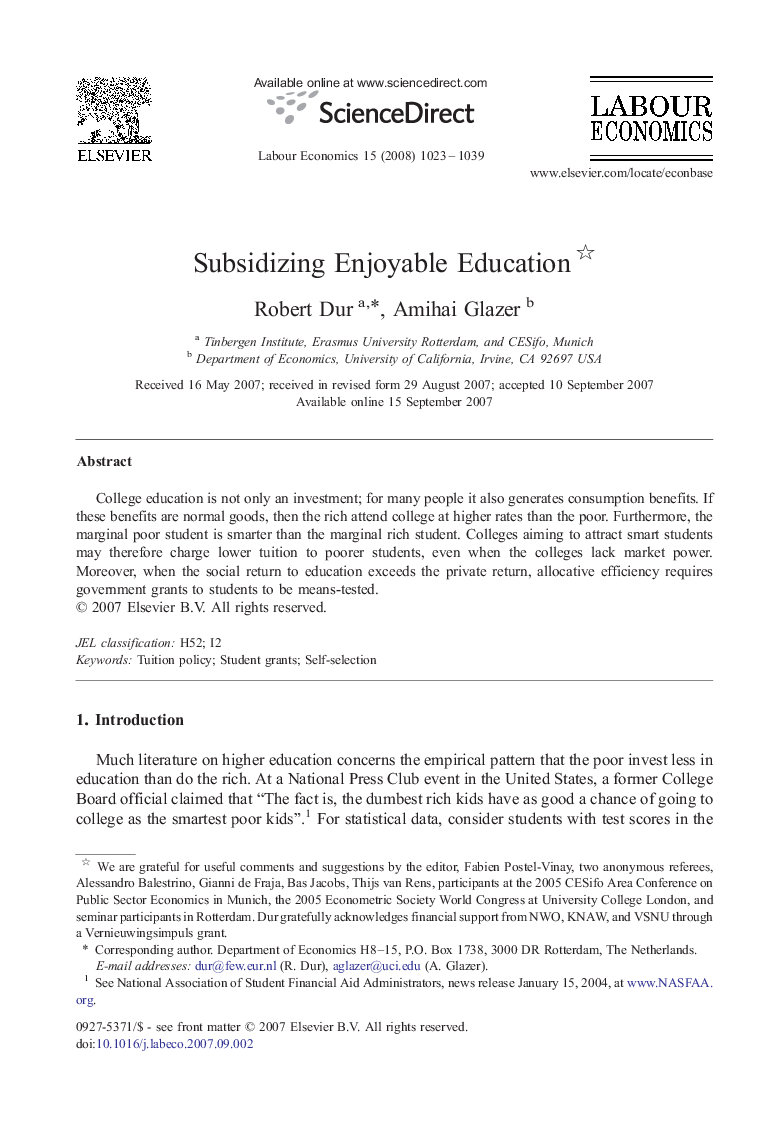| Article ID | Journal | Published Year | Pages | File Type |
|---|---|---|---|---|
| 971929 | Labour Economics | 2008 | 17 Pages |
Abstract
College education is not only an investment; for many people it also generates consumption benefits. If these benefits are normal goods, then the rich attend college at higher rates than the poor. Furthermore, the marginal poor student is smarter than the marginal rich student. Colleges aiming to attract smart students may therefore charge lower tuition to poorer students, even when the colleges lack market power. Moreover, when the social return to education exceeds the private return, allocative efficiency requires government grants to students to be means-tested.
Keywords
Related Topics
Social Sciences and Humanities
Economics, Econometrics and Finance
Economics and Econometrics
Authors
Robert Dur, Amihai Glazer,
